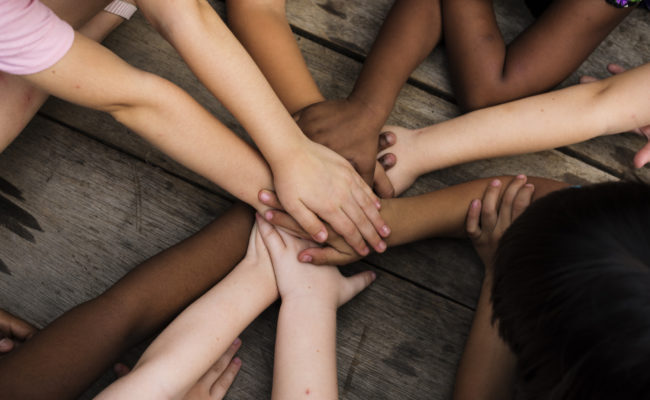
Right now across the world we are observing acts of collaboration, kindness and ingenuity. Individuals and organizations are responding to a call to action, shifting their work to use their expertise or trade towards the common goal of flattening the curve.
This is not that dissimilar to the work that Building Bright Futures is doing. We are leaning into what we know about the early childhood system in Vermont, the existing relationships that we have built over the last several years, and the mechanisms that we have constructed for elevating the needs and voices of Vermonters as they relate to early childhood.
In January, I began an internship with BBF, having sought them out to explore the intersection of my two passions – early childhood education and leadership. As an educator, I recognize the role that relationships play in children’s development – in fact, children do develop in an environment of relationships; with their caregivers, with their community. From this perspective, it only makes sense to create a coordinated, collaborative, and integrated early childhood system. The key to this work is collective impact.
Over the last few months, I observed BBF’s team working to strengthen existing networks between stakeholders in the early care, health, and education sectors, and work together in response to the COVID-19 pandemic. I observed BBF build new partnerships, coordinate the delivery of resources to communities, and elevate the voices of families as they monitor what is working in the early childhood system and what is not.
Perhaps most profound has been tracking how this organization is responding to the pandemic.
In all, I spent almost equal time working with them before COVID-19, as I have after, and have seen them be both thoughtful and nimble as they pivot existing systems to serve the community. This highlighted the role of the existing infrastructure, relationships, and mechanisms for communicating at the regional and state levels.
Established Regional Councils are now a platform for gathering and sharing information about needs and resources at the local level, inviting cross-sector solution-oriented thinking about how to coordinate and deliver resources. In partnership with Junior League of Champlain Valley, BBF has helped get 7,500 diapers to the Northeast Kingdom and Addison, Rutland, and Windham counties.
Early Childhood Action Plan committees have been able to track questions and gaps in services; brainstorming solutions that promote partnership across sectors and align with current needs and conditions. Parent Ambassadors joined the Families and Communities Committee meeting in March, sharing their experience in responding to COVID-19 through Vermont’s Early Childhood system, and helping to inform what is working and where challenges are ongoing.
In their capacity as an advisor, BBF has been tracking and communicating essential questions and is able to serve as a liaison between public and private partners, local and state agencies, and advise the government and legislature on the early childhood landscape, response, and policies in Vermont. The State Advisory Council continues to serve as a platform for collaboration, uniting leaders and efforts at the state level to create meaningful change for the system.
As a whole, these acts reflect the interconnectedness of BBF in our early childhood community. Here in Vermont, that work might seem the norm; neighbor helping neighbor. But to me, with a deeper look, it reflects the presence of a coordinated, collaborative, and integrated early childhood system in action, and a commitment to sustain and improve that system.
Jen Olson is a student in UVM’s Educational Leadership Master’s Program and interned with Building Bright Futures from January-May 2020. She is a Mentor Teacher at the UVM Campus Children’s School where she has worked for 8 years.


